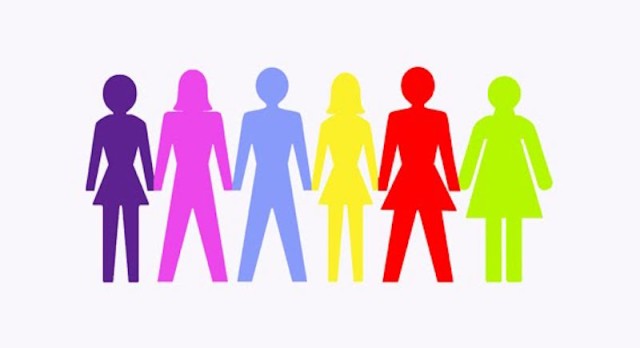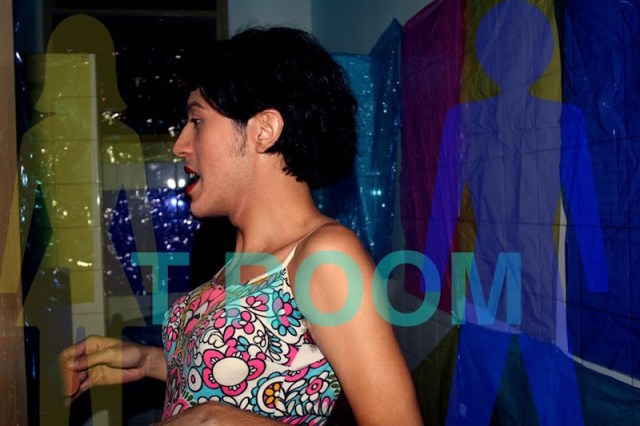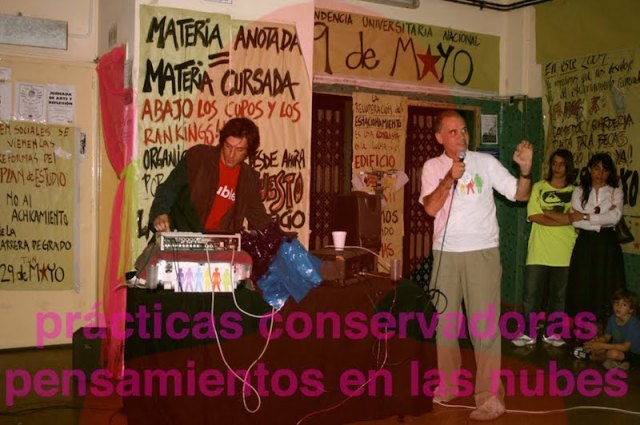In 2009, a group of artists and activists in Buenos Aires, Argentina transformed the gender-segregated bathrooms at the University of Buenos Aires’s Social Science Faculty into universal, gender-neutral bathrooms with a project called “Baño Revolution” (Restroom Revolution).
Led by artist and sociologist Dr. Syd Krochmalny and lead member of the well-known Argentine rock band “Ahora,” Nacho Marciano, a group of about 50 participants linked to the national university’s sociology department took action to both draw attention to and combat the discrimination against the LGBT community inherent in the gender binary bathroom system.

During the Baño Revolution happening, participating activists concealed the men’s and women’s signs on all the bathrooms in the national university’s social sciences building by covering them with universal, genderless bathroom signs (shown below). Each bathroom that used to be designated as “men’s” or “women’s” was then open to anyone who chose to identify as either gender, or anyone who fell anywhere along the gender identity or sexuality spectra, regardless of the gender indicated on his or her birth certificate.

Also during the happening, participants were invited to express any gender they identified with, and freely enter any of the new, universal bathrooms. There was even a discotheque set up inside one of the new universal bathrooms, where participants were invited to dance, observe, interact, and celebrate.
Expanding beyond the one-time happening, performance ephemera from the Baño Revolution project includes universal Baño Revolution bathroom signs, Baño Revolution T-shirts, an eponymous original song and music video composed by Ahora specifically for the project, plus a music video, unique still images, and more.
In Argentina, Baño Revolution generated press in newspapers and drew significant attention. To note, the project was executed in 2009, which was a very important and charged year for gender and sexuality rights activism in the country. In 2010, Argentina became the first country in Latin America and the second country in the Americas to legalize gay marriage.

A considerable amount of time has passed since I last thought about this project. But, given recent current events happening here in the United States like the Public Facilities Privacy & Security Act (HB2), it returned to my radar in a new way. It makes an impact when artistic interventions are carried out in order to address societal problems and work toward sparking positive change. It is an awesome use of art and creativity which we could use here, now.

I think it could be interesting to look into what creative or artistic action might currently be being taken, and even keep our eye out for future projects, aimed at combatting the problem of bathroom-oriented (and other) discrimination due to new laws in North Carolina, Mississippi and other U.S. states.
While this isn’t quite the same thing as Baño Revolution, some celebrity creatives in the U.S. are protesting the laws in their own way. According to this article, Sharon Stone refused to film a movie in Mississippi and musicians including Bruce Springsteen and Ringo Starr cancelled concerts in North Carolina in reaction to the new discriminatory laws. Other prominent art world figures are also taking a stand, such as the director of the Andy Warhol Museum boycotting the laws by declining an invitation to serve as the visiting critic for UNC Chapel Hill’s 2016 MFA class.

It is at least somewhat settling to see President Obama speak out against these laws in a recent visit to the UK, but it is still shameful that the laws are even able to exist. I agree with British PM David Cameron, who according to the New York Times recently stated that the British “view on any of these things is that we believe that we should be trying to use law to end discrimination rather than to embed it or enhance it.”
If you are aware of any artistic intervention against HB2 or other similar discriminatory laws, I invite you to comment on this post and share your thoughts.
